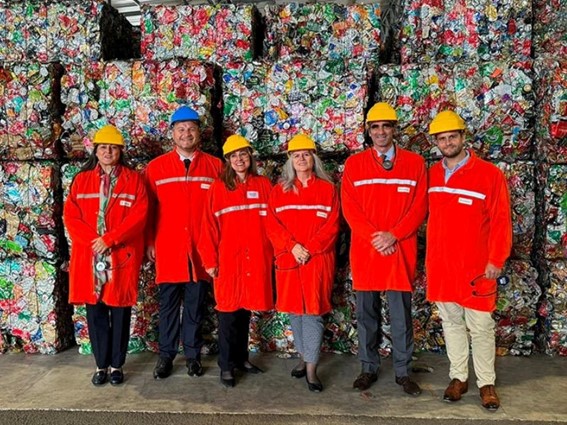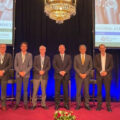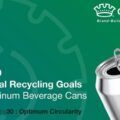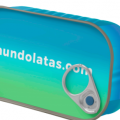Constellium, a global leader in aluminum and recycling solutions, is proud to announce that its recently opened aluminum recycling center in Neuf-Brisach, France, has reached an important milestone by successfully qualifying its first aluminum rollstock with Crown, a world leader in metal packaging.
The aluminum coils, produced primarily from post-consumer scrap, have passed rigorous qualification tests at Crown’s manufacturing plants in France and Spain. Crown has approved the use of Constellium’s aluminum coils in its beverage cans, marking a significant step in the sustainability efforts of both companies.
The qualification by Crown is a significant achievement for Constellium, demonstrating the company’s commitment to providing high-quality recycled solutions for its customers and supporting its sustainability goals. Constellium’s new recycling center in Neuf-Brisach adds 130,000 metric tons of aluminum recycling capacity annually, bringing Constellium’s global recycling capacity to approximately 735,000 metric tons at its European and North American facilities.
“We are delighted with the development of this new recycling center that brings more used beverage can recycling capacity to the market, aligning with our ongoing commitment to circularity,” said John Rost, Crown’s senior vice president of Technology, Sustainability and Regulatory Affairs.
“The use of these rolls in our production encourages higher levels of recycled content in our products and helps meet the sustainability goals set out in our Twentyby30™ program.
Through our value chain partnerships, we continually seek to support the can industry and its commitment to increase can collection, especially through the implementation of Deposit Return Systems (DRS) in our markets to foster a stronger circular economy.”
“We thank Crown for their long-term partnership and support,” said Ingrid Joerg, Chief Operating Officer of Constellium. “By enhancing our recycling capabilities and collaborating with trusted partners like Crown, we are making significant progress toward reducing carbon emissions and fostering circularity in the packaging market.”
This collaboration highlights the efforts of both companies to advance the circular economy by reducing the need for primary aluminum production through large-scale recycling efforts. More qualifications are expected to follow with other customers.














